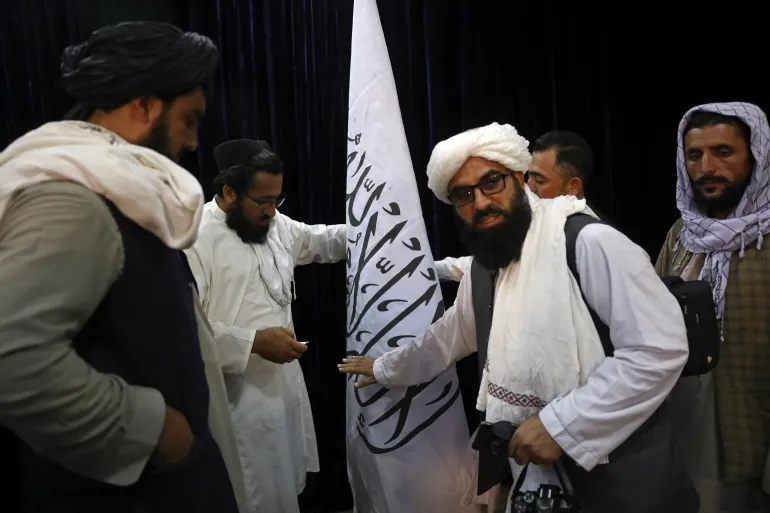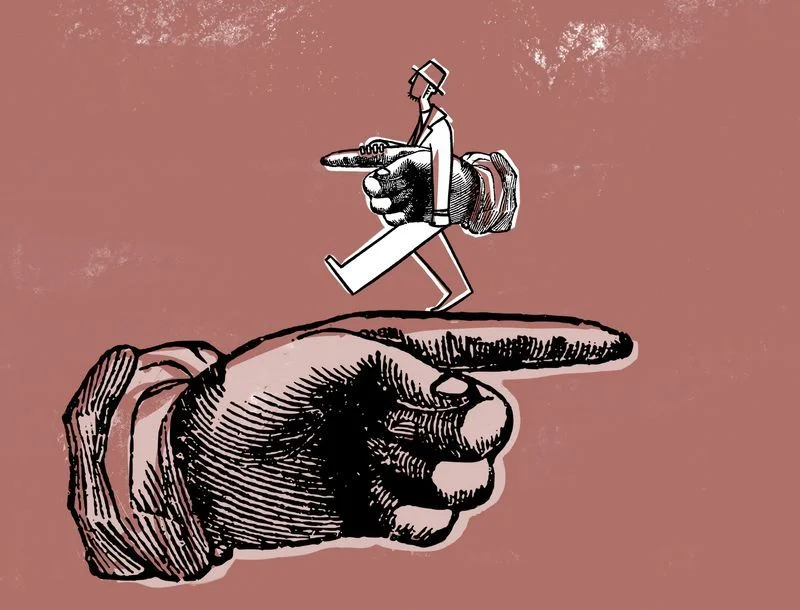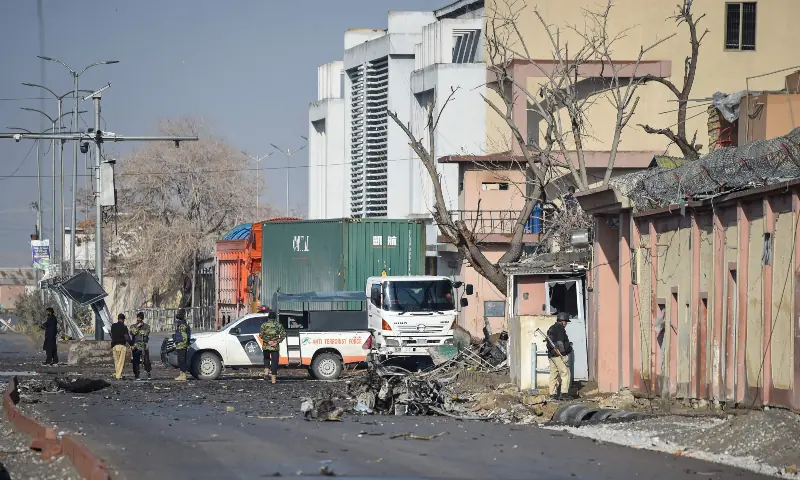Taliban in recent years have honed their diplomatic arms. This is because the group did not enjoy any international legitimacy; when it took control of the country during the late 90s to 2001.
When it comes to the Taliban, many stakeholders related directly or indirectly to Afghanistan affairs hold the view that Pakistan somehow has influence over the groups which control nearly 50 per cent of the Afghan Territory and is contesting in other provinces. The story repeated on many occasions is that the Taliban are a creation of Pakistani intelligence agencies during the late 90s and the same agencies have continued to enjoy a strong influence over Taliban leadership. These claims bring forth that Pakistan deliberately housed Taliban leadership; during the American invasion after the unfortunate 9/11 attacks. This propagation symbolizes that Pakistan has such control over the Afghan militant group like that of a military unit. Suggesting that on-ground troops adhere to the orders that come from higher-ups.
Taliban’s Leadership in Afghanistan, not Quetta
More recently, a statement by the official spokesperson of the Islamic Emirate of Afghanistan, Zabihullah Mujahid read that “We don’t have a special relationship with Pakistan that has been closely identified. Our leadership is in our own hands. Our leadership is in Afghanistan, not in Quetta.”
While there are still observers that call this statement a smokescreen to cover Pakistan and the Afghan Taliban collusion.
An achromatic look into the stature of the Taliban in the past few years hints that; the group has acted out of its own discretion of many strategic issues, albeit Pakistani reservations.
This results in negative reductions in the hypothesis of Pakistani control over the Taliban. The recent events have witnessed the group rising not only in ‘on ground’ power but also in its diplomatic muscle. It has managed to engage regional states like Iran and hegemons like Russia and China.
A Blame Game that goes On
This statement also puts in question the remarks of the Afghan National Security Adviser (NSA) Hamdullah Mohib who not only holds the view that Pakistan and the Inter-Service Intelligence agency (ISI), in particular, are the sole reason for the Taliban’s insurgency but has also used expressions for Pakistan unworthy of being used by an officeholder, in a speech last month in Nangarhar province. During his speech, Mr Mohib persistently aimed to highlight these allegations and repeatedly called Pakistan a haven for insurgents.
Not only this, Mr Mohib in his latest remarks made some unacceptable vituperations against the Pakistani Foreign Minister. It must be noted that the Afghan NSA has landed into troubled waters previously for his uncalled for remarks against the Special Representative for Afghanistan, Zalmay Khalilzad. Mohib called him a ‘viceroy’ who wanted Afghanistan for himself. After the incident, the US State Department officially cut off ties with the Afghan NSA and conveyed their displeasure to President Ashraf Ghani.
Pakistan has no Favourites in Afghanistan
This week, Pakistan’s Foreign Minister while speaking in Islamabad remarked that Pakistan had taken a very clear decision not to interfere in Afghanistan\’s internal affairs.
The Foreign Minister added that; “We have no favourites. There is a general buzz that we are advocates of the Taliban. I am not and I don’t represent them, I represent Pakistan. Taliban are Afghans”. He urged both the Kabul Government and the Taliban to show some flexibility. Reiterating that otherwise, it would do no good for the region.
Taliban Seeking International Legitimacy
When the Taliban first emerged as a distinct group, in 1994; they did not articulate any positions on international issues and were not thinking about international recognition. Only Saudi Arabia, United Arab Emirates and Pakistan granted recognition to the Taliban’s Islamist Government. The war of two decades has witnessed a resurging Taliban.
The Taliban seems to have realized that without international legitimacy; even a partial power share in the centre cannot be achieved.
Keeping in view this context the group has, in literal terms, engaged with ideological foes through diplomatic means.
Taliban and International Engagements
The quest for diplomatic and political recognition has been a constant in the Taliban’s struggle; from the beginning and through the Doha agreement of February 29, 2020. The group directly engaged with the United Nations (UN) two months after the Doha deal, where the Taliban negotiating team met with the head of the UN Assistance Mission in Afghanistan (UNAMA) Tadamichi Yamamoto.
In January 2021, Iran invited the Taliban, the same group is viewed as an adversary a few years back, for bilateral meetings to discuss prospects under the Iranian initiative to reach out to key Afghan parties in the Afghan Peace Process. If viewed in the context of geopolitical animosity between Iran and the United States, which enjoyed the military presence in Afghanistan, the developing ties between Taliban and Iran could be a symbolic gesture of marking sides.
Read here: Iran-Taliban Relations and Regional Peace
Even the recent hot topic of the Biden-Putin Summit in Geneva entailed exchanges concerning Afghanistan and US troops withdrawal where Biden stated that the response would depend in part on Russia’s actions and if Putin offered to help. The Taliban also aimed at establishing closer ties with Russia during the Moscow rounds of talks. A diplomatic congruency was observed when both Russia and the Taliban criticized the US for not adhering to its commitment to withdraw US troops by May 2021.
An Indo-Taliban Concordat?
A particular fact that erodes the notion of Pakistani influence over the Taliban is the latter’s overtures with India. While no substantial statements of any dialogue with India and the Taliban for the strategic purpose have been publicized. There have been reports of India opening channels to outreach the Taliban. This creates a possibility to consider this as a policy shift on behalf of India. It is noteworthy that Pakistan openly supported the Democratic Governments in Kabul formed after Operation Enduring Freedom. It not only provided economic but also military support to the Afghan National Army; which has been at the forefront of the fight against the Taliban.
As the Taliban make strong gains in Afghanistan and India’s apparent non-official shift in policy, this can lead to apprehensions not just for Kabul but also for Pakistan. Pakistan also had reservations regarding Indian endeavours in Afghanistan. Pakistan considered Indian participation as a security threat. The Indian media’s rationalization of links with Taliban by the wording of ‘ground realities’ or an ‘outreach to Taliban commanders in hierarchy’ symbolizes that the Taliban could overlook the insecurity of its neighbouring states which has strong contentions with India, Pakistan in particular.
Incompatibility of Taliban’s Actions with Pakistan’s Priorities
When it comes to peace dialogue, Pakistan weighs in with an Intra Afghan settlement. Whereas, the Taliban has remained adamant in such engagements which can be attributed to the group’s quest for internal clout. Pakistan surely does not want to repeat the 90s. A situation that resulted in a civil war and a large influx of refugees from Pakistan to Afghanistan. This already took a toll on Pakistan’s economic determinants. The losses due to War on Terror were even more insurmountable.
The Taliban enjoy control over a significant portion of Afghan territory. It is discernible that they cannot be classified as mere renegades that would earn their organizational funds through small crimes or even from an economically struggling state like Pakistan.
Moreover, for Pakistan, the divergence with the Taliban was already evident; when the Taliban refused to hand over Osama bin Laden after the 9/11 attacks. Pakistan’s own battle with lethal militancy groups such as Tehrik e Taliban Pakistan (TTP) and others; that had links with the Afghan Taliban marked another dimension of severance.
Conclusion
The above-mentioned facts hint towards a departure of the Taliban from just an armed militant faction. It highlights them as a faction striving towards political and international legitimacy for two goals; lifting of sanctions and recognition of authority. For this purpose, the group acts as per its own discretion just like any other group that would have controlled vast swathes of land.
Furthermore, the operational structure of the Taliban shows that it is not a military organization through which its thousands of fighters can be controlled by a single entity. The disjointed, tribal and local leadership based structure would depreciate the nature of influence any power would hold over the Taliban.
Taliban’s control in areas distant from Pakistan’s borders would also second the assertion, that how could Pakistan aid the Taliban in those areas. All while combating terror in its very own frontier and tribal regions. In a region where once Jihadis were trained under the auspices of the CIA.
It might be true that Pakistan had congruencies with the Taliban during the 90s. This may be due to its experience with Hekmayatar and the state’s priorities to secure its Western flank during the Civil War. However, an empirical analysis of Pak-Taliban engagements of the last two decades would signify a change in the priorities of both. Pakistan used its good offices to bring the Taliban to the table and used its limited influence for eventual Afghan Peace, while the adamancy of the latter out of their own discretion has been evident. Henceforth, the notion that Pakistan’s influence over the Taliban is ‘exaggerated’ begins to take primacy.






